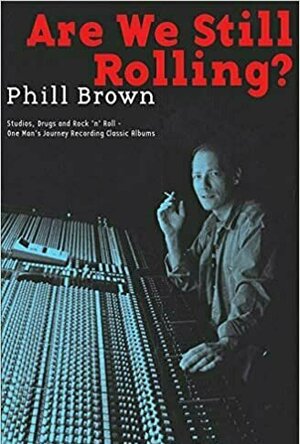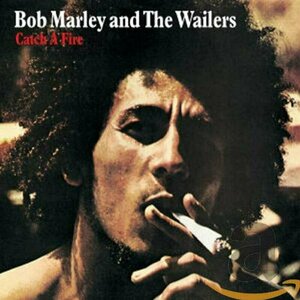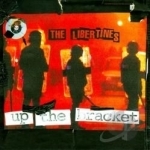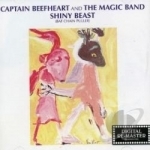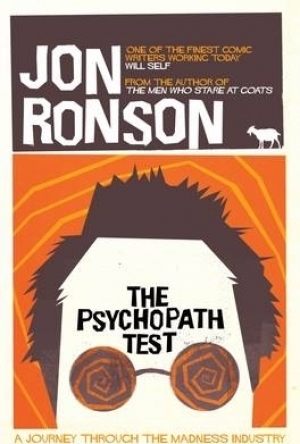Search
Search results
Alexis Taylor recommended Are We Still Rolling? in Books (curated)
Moses Boyd recommended Midnight Ravers by Bob Marley in Music (curated)
Adam Green recommended Up the Bracket by The Libertines in Music (curated)
Marc Riley recommended Shiny Beast (Bat Chain Puller) by Captain Beefheart / Captain Beefheart & The Magic Band in Music (curated)
BookblogbyCari (345 KP) rated The Psychopath Test in Books
Sep 11, 2018
This book is remarkably entertaining – I can see why it’s having such a long stint in the bookseller’s shelves! It’s most definitely written for the lay person, and that goes some way to explaining the book’s longevity.
It logs the course of events taken by Jon Ronson as he interviews some people who are deemed crazy, or psychopathic, and some people who diagnose psychological traits. The start of Ronson’s journey is intriguing - it begins when various academics, predominately neuroscientists, are sent mysterious and cryptic packages. They all rush onto online forums trying to figure out what it’s all about. Unfortunately, this section comes to an abrupt and disappointing conclusion (no spoilers).
This all changes in Chapter 2, however. Here, Ronson meets a man, Tony, who claims to have faked mental illness in order to get put into a psychiatric facility rather than a traditional prison. The Scientologists are on his side, and they send Ronson Broadmoor’s file on Tony, but with significant omissions, which shed a whole new light on why Tony should be incarcerated.
Chapter 3 describes how in the 1960’s psychiatrist Elliot Barker, held several nude LSD-induced psychotherapy sessions for psychopaths. In Chapter 4, Ronson goes on a conference to learn about Bob Hare’s psychopath checklist, and by Chapter 5, he’s using it in an interview with a leader of a death squad, Toto Constant. In Chapter 6, he uses it in an interview with Al Dunlan, who apparently enjoyed firing 6.000 people from their jobs.
Following a brief interlude to discuss the media, conspiracy theorists and the second coming, the theme of psychopathy is picked up again in Chapter 9 which looks at criminal profiling, and how it was once used to lure one particular suspect into an unwarranted arrest.
Ronson goes off on another tangent in Chapter 10, which discusses the (very real) problem of an apparent ballooning of mental illness diagnoses. Here he tells the tale of what happened when a 4-year-old girl was given 10 pills a day for “childhood bipolar” disorder.
In Ronson’s concluding chapter, he attends a tribunal for the Tony of Chapter 2, and Tony’s fate is decided (no spoilers). By this point, Tony’s charisma has got Ronson taken in, in spite of Tony showing several psychopathic traits.
My take away from the book is that people will have eccentricities, diagnosis or not, and the way to tell if someone is dangerous, is by their actions. Ronson himself has spotted psychopathic traits in himself, despite being overly anxious and not the slightest bit evil. The book sheds a lot of light, not only on the nature of obtaining a diagnosis, but also on its implications.
Whilst I do recommend the book, this book is most definitely not a thorough analysis of the mental health industry, nor the criminal profiling industry. But for entertainment purposes it gets top marks. If you are looking for a more authoritative book on the mental health industry and diagnosis, I recommend Saving Normal by Allen Frances.
It logs the course of events taken by Jon Ronson as he interviews some people who are deemed crazy, or psychopathic, and some people who diagnose psychological traits. The start of Ronson’s journey is intriguing - it begins when various academics, predominately neuroscientists, are sent mysterious and cryptic packages. They all rush onto online forums trying to figure out what it’s all about. Unfortunately, this section comes to an abrupt and disappointing conclusion (no spoilers).
This all changes in Chapter 2, however. Here, Ronson meets a man, Tony, who claims to have faked mental illness in order to get put into a psychiatric facility rather than a traditional prison. The Scientologists are on his side, and they send Ronson Broadmoor’s file on Tony, but with significant omissions, which shed a whole new light on why Tony should be incarcerated.
Chapter 3 describes how in the 1960’s psychiatrist Elliot Barker, held several nude LSD-induced psychotherapy sessions for psychopaths. In Chapter 4, Ronson goes on a conference to learn about Bob Hare’s psychopath checklist, and by Chapter 5, he’s using it in an interview with a leader of a death squad, Toto Constant. In Chapter 6, he uses it in an interview with Al Dunlan, who apparently enjoyed firing 6.000 people from their jobs.
Following a brief interlude to discuss the media, conspiracy theorists and the second coming, the theme of psychopathy is picked up again in Chapter 9 which looks at criminal profiling, and how it was once used to lure one particular suspect into an unwarranted arrest.
Ronson goes off on another tangent in Chapter 10, which discusses the (very real) problem of an apparent ballooning of mental illness diagnoses. Here he tells the tale of what happened when a 4-year-old girl was given 10 pills a day for “childhood bipolar” disorder.
In Ronson’s concluding chapter, he attends a tribunal for the Tony of Chapter 2, and Tony’s fate is decided (no spoilers). By this point, Tony’s charisma has got Ronson taken in, in spite of Tony showing several psychopathic traits.
My take away from the book is that people will have eccentricities, diagnosis or not, and the way to tell if someone is dangerous, is by their actions. Ronson himself has spotted psychopathic traits in himself, despite being overly anxious and not the slightest bit evil. The book sheds a lot of light, not only on the nature of obtaining a diagnosis, but also on its implications.
Whilst I do recommend the book, this book is most definitely not a thorough analysis of the mental health industry, nor the criminal profiling industry. But for entertainment purposes it gets top marks. If you are looking for a more authoritative book on the mental health industry and diagnosis, I recommend Saving Normal by Allen Frances.
